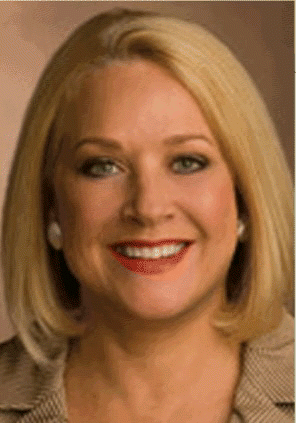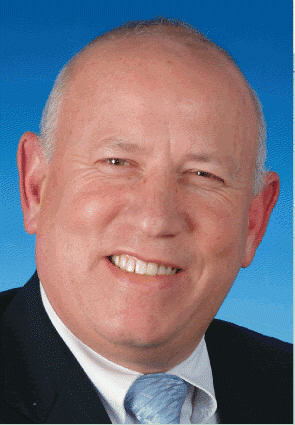SAN DIEGO-How much will I make? That question is, understandably, front and center for many otolaryngology residents and fellows weighing their first career opportunity. According to Karen A. Zupko, President of Karen Zupko and Associates of Chicago, young physicians would also be wise to size up other important factors about their prospective employers-factors that can affect their incomes, working conditions, and even quality of life.
Explore This Issue
November 2009As CEO of ENT and Allergy Associates, LLP, a large specialty practice with 30 locations in the New York-New Jersey area, Robert A. Glazer, MPA, has noticed that candidates often do not ask the right questions of him during the job interview. He believes that young physicians should more carefully evaluate the practices they are hoping to join.
Ms. Zupko and Mr. Glazer spoke during two related miniseminars designed to provide young physicians with vital education about the business of medicine. Both sessions were sponsored by the Academy’s Section for Residents and Fellows, and were moderated by Michelle M. Roeser, MD, Chief Resident Associate in Otorhinolaryngology at the Mayo Clinic in Rochester, MN.
In the first session, Financial Tips for a Successful First Year of Practice, Ms. Zupko and her colleague, Mary LeGrand, RN, MA, a coding and reimbursement specialist, summarized types of practice opportunities and compensation packages. They also urged attendees to educate themselves about the complexities of coding and billing. In Practice Considerations and Contracts for New Employment, Mr. Glazer and copresenter Michael R. Moore, JD, LLM, a partner with Sheppard, Mullin, Richter and Hampton, LLC, in San Diego, got specific about contract negotiations.
More than the Money
The annual survey of physician compensation and productivity published each fall by the Medical Group Management Association (MGMA) gives you a frame of reference for the real world of compensation and productivity, said Mr. Moore. The most recent report showed that physicians with one to two years of practice in otorhinolaryngology had a median income of $307,792.
The range of practice opportunities is also important to consider, said Ms. Zupko. Should you start a solo practice? At this point in time, the headwinds against you are considerable, she cautioned.
Direct employment with a hospital is a growing trend, but job seekers should be careful to validate that the initial pay package that is offered will be sustainable. (They can ask to see the same reports and documents described below for group practices.) An academic practice may be attractive for others. The downsides of an academic career, according to Ms. Zupko, include lower compensation, departmental politics, and limited ancillary opportunities. Nor will an academic job insulate the physician, in this regulatory and reimbursement climate, from wrestling with productivity and business issues.
Focus on Your Values
Most of the subsequent commentary in both sessions focused on group practices. Even small group practices have a culture-and you will be expected to fit in with that culture, noted Ms. Zupko. If you join a group practice with a lukewarm feeling, it’s a little bit like marching down the aisle on your wedding day and thinking, ‘Oh, I don’t know if I should be here,’ she quipped. Just as with marriages, the consequences of a bad match can be expensive if you decide to exit the relationship before your contract is up.
Getting a good match is critical, agreed Mr. Glazer. Both he and Ms. Zupko emphasized that candidates should factor in core values when making a job decision. Don’t get hung up on weather and geography, cautioned Ms. Zupko, who believes that family happiness and work-life balance should be at the center of the decision rubric. Candidates need to consider spouses’ preferences, schools, type of community and proximity to family when choosing their jobs. Mr. Glazer seconded this advice, even if young physicians are not yet married and don’t have children.
Look Before You Leap
 If you join a group practice with a lukewarm feeling, it’s a little bit like marching down the aisle on your wedding day and thinking, ‘Oh, I don’t know if I should be here.’
If you join a group practice with a lukewarm feeling, it’s a little bit like marching down the aisle on your wedding day and thinking, ‘Oh, I don’t know if I should be here.’-Karen A. Zupko
When it’s time for the interview, come prepared to assess the health of the practice. Mr. Glazer outlined some of the key questions candidates should ask of their prospective employers. Among those are:
- How long has the practice been in business?
- What is its governance structure?
- May I see your productivity analyses-such as the collections history for the past 12 months?
- Do your office staff members regularly take coding courses? Is your practice administrator a member of the Association of Otolaryngology Administrators?
- What is your compliance plan?
- How is the practice capitalized?
- Do you employ an outside accountant?
- How much debt would I assume if I became a partner?
If the practice balks at answering these questions, Mr. Glazer advised candidates to offer to sign a confidentiality or nondisclosure agreement.
 If you pick the right situation the first time out, you are setting up a 30-year career.
If you pick the right situation the first time out, you are setting up a 30-year career.-Robert A. Glazer, MPA
The Power of Paying Attention
Ms. Zupko and Ms. LeGrand wholeheartedly endorsed acquiring detailed practice management information. When you review collections reports, pay close attention to the days in receivables column, said Ms. LeGrand. If there are too many accounts more than 90 days late, this could be a red flag that staff may not be aggressively pursuing collections. Ms. Zupko and Ms. LeGrand urged physicians to become familiar with fixed and variable overhead, and with how physician direct expenses are allocated. Do members of the group pay for their own CMEs, for example, or is it a benefit of employment?
Get It in Writing
It is always advisable, once a job offer is made, to retain an attorney well versed in health care law (the American Health Lawyers Association is one such source, at www.healthlawyers.org ).
Mr. Moore, who is an experienced health care attorney in California, outlined the key components of offer letters and contracts. Oral offers should be followed by an offer letter, which typically lists the employment commencement date, compensation (including salary and bonuses), insurance benefits, pension contributions and whether there is a waiting period, vacation and CME benefits, as well as the criteria and timeline for conversion to owner status. Candidates are normally asked to sign and return the offer letter. Keep copies of all communications in your records, he advised.
When the employment contract arrives, candidates should make sure that the contract is consistent with the offer letter, because the terms of the employment contract supersede the offer letter. Remember that practicing in a corporation will protect you from the professional errors of your colleagues, unless you assisted on the case. In a limited liability company (LLC) you have the same protection. But in a general partnership, all your assets are exposed for the acts of your partners. These differences could be important in the employment decision.
Both Ms. Zupko and Mr. Moore cautioned candidates to carefully ascertain details of the practice’s malpractice insurance coverage. Claims-made policies (which cover only incidents that occur during the policy period) usually carry so-called tail insurance provisions, so that you are covered if a former patient files a claim after you leave a group. Who pays for this tail insurance-the employer or the new candidate-has become a bit of a recruiting impediment, said Mr. Moore. Ms. Zupko said that this can be an expensive proposition if, for some reason, you decide to leave the group, and have not previously negotiated a provision that the group pay this amount.
Is there a noncompete provision in the contract? Restrictive covenants, including reasonable duration and scope limits, are still enforceable in most states, said Mr. Moore. Most of these provisions prevent a physician from practicing in the same geographic area for two to five years. In California, the covenants have shifted to proscriptions against using so-called trade secrets of the practice-such as the patient database or referral sources (except for those referral sources you have built on your own).
 Michael R. Moore, JD, LLM, said that restrictive covenants, including reasonable duration and scope limits, are still enforceable in most states.
Michael R. Moore, JD, LLM, said that restrictive covenants, including reasonable duration and scope limits, are still enforceable in most states.Once in practice, Ms. LeGrand and Ms. Zupko emphasized, it is important to keep abreast of how the practice is being run. For young physicians to prepare for this phase of their careers, they recommend that these physicians take a course on CPT coding; learn to code to the very highest level of specificity; understand Relative Value Units (RVUs), the basis of our payer system; and apply for their Medicare National Provider Identification number even if they are not handling Medicare patients at present.
If all this sounds like a lot of detail, it is, agreed the presenters. But lest young physicians make a bad match, or, by ignoring business practices, leave money they have earned on the table, it is important to learn as much as possible about the business of medicine. If you pick the right situation the first time out, you are setting up a 30-year career, Mr. Glazer observed. Let the real-world education begin!
ENT Today
For Editorial, Permissions, or Publishing Matters:
ENT Today
Lippincott Williams & Wilkins
333 7th Avenue, 19th Floor
New York, NY 10001
Phone: (646) 674-6544
Fax: (646) 674-6500
ENToday@lwwny.com
For Advertising Sales:
Martha McGarity Lippincott Williams & Wilkins
333 7th Avenue, 19th Floor
New York, NY 10001
Phone: (646) 674-6535
Fax: (646) 674-6502
martha.mcgarity@wolterskluwer.com
©2009 The Triological Society
Leave a Reply